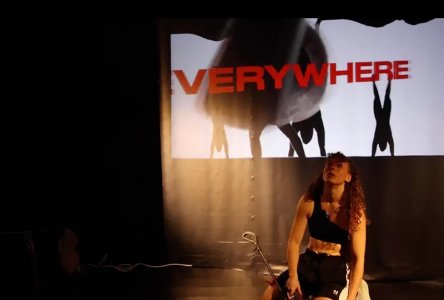
GASLIGHT
GASLIGHT, Roslyn Packer Theatre, 21 August – 15 September 2024. Photography by Brett Boardman
In 2022, Merriam-Webster named “gaslighting” its Word of the Year. “The psychological manipulation of a person, usually over an extended period of time, that causes the victim to question the validity of their own thoughts, perception of reality, or memories.”
Yet the term – so much part of “coercive control” and “domestic abuse” – originated in 1938 with this West End thriller by Patrick Hamilton. In it, a young wife is terrorised by unexplained occurrences in her London home, including the dimming without warning or reason of the gas lights. Unseen by her solicitous husband or the housekeeper, or maid, it makes her seem and begin to feel unhinged.
This version dates from 2022 when Canadians Johnna Wright and Patty Jamieson, adapted it for Ontario’s Shaw Festival, and has been described by director Lee Lewis as “a familiar story told in a thrilling way”. It’s that and more.
Such toxic behaviour toward women has become a peculiarly enduring theme in popular cinema since the play’s London debut. It was filmed in the UK in 1940, then the 1944 classic by George Cukor with Ingrid Bergman as the tormented wife. And, in 1958, at a time when the ABC used to undertake exciting work, they broadcast a performance live from Melbourne.

Disturbing to note, meanwhile, that gaslighting as a theme has more or less memorably generated Midnight Lace (1960, with Doris Day being driven to the edge), Hush, Hush Sweet Charlotte (1964, Bette Davis), Rosemary’s Baby (1968, Mia Farrow), Sleeping With The Enemy (1991, Julia Roberts), Flightplan (2005, Jodie Foster), Changeling (2008, Angelina Jolie), The Girl On The Train (2016, Emily Blunt), Unsane (2018, Claire Foy), and Invisible Man (2020, Elizabeth Moss).
There are probably others, but watching Geraldine Hakewill, as Bella Manningham, being made insane by the twisted solicitousness of husband Jack (Toby Schmitz), the cruelty of gaslighting becomes clear and popular fascination with it seems disturbing. Does an eventual happy(ish) ending justify such trauma? Or is something else at work? For Jack Manningham, it slowly emerges that a fortune in lost rubies is his motive and Bella is both a tool and an obstacle.
The Manninghams live in a comfortable London terrace where the wood-panelled parlour is lit by gas sconces and chandelier, while a floor-to-ceiling window admits daylight and indicates the arrival of nightfall. The set (and period costumes) by Renee Mulder are superb, as is Paul Jackson’s lighting. The ritual of turning on each lamp by the young maid Nancy (Courtney Cavallaro) is mesmerising.
Similarly, the soothing to and fro of delivery and retrieval of tea tray or breakfast tray by housekeeper Elizabeth (Kate Fitzpatrick) is transfixing, as are the careful rites of tea pouring, dash-of-milk adding, sugar lump plopping, spoon stirring… if you weren’t feeling a little uneasy anyway then these subtly prescribed activities might set your teeth on edge. Not least because we’re drawn in by the suggestion of charming domestic harmony.

In 1938 and 1944, discovery of Jack’s villainous intent and the mechanics of Bella’s possible rescue from it were – naturally – given over to a man, while Bella had the vapours and looked pretty. The 2022 rewrite does away with that without destroying the story’s essence.
Where we’ve become accustomed to jump cuts, blackouts, and other movie archetypes, Gaslight is deliciously old-fashioned scenes, with leap-out-of-your-skin moments. Simultaneously, Paul Charlier’s score makes sly reference to Hitchcock even as Lewis’s direction harnesses the power of silence.
Essential to her scheme is a quartet of actors made confident enough to take their time and tease out the nuances of unease – and occasional laughter – that make the production such a rich experience. Geraldine Hakewill’s journey from Victorian fragility to New Woman is thrilling, while Toby Schmitz’s unctuous Prince Charles delivery is a reminder that our king once was a champion gaslighter. At the other end of the social scale is Nancy Cavallaro’s housemaid whose belligerence is the source of much humour. And Kate Fitzpatrick’s legendary status lends itself to the household’s éminence grise whose skills with a cast iron skillet are horribly hilarious.
An enthralling night out – recommended without reservation.

-c444x300.jpeg)

